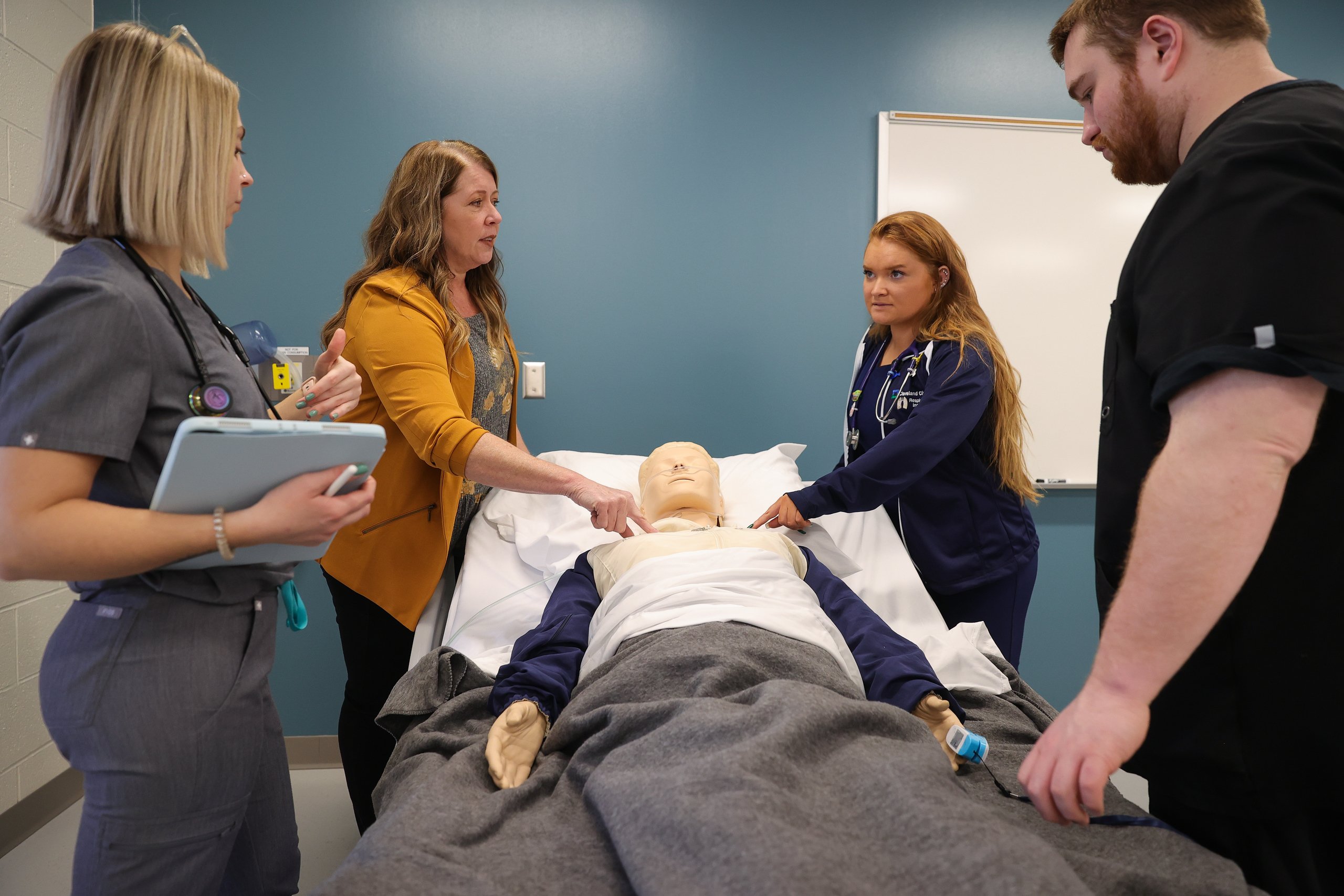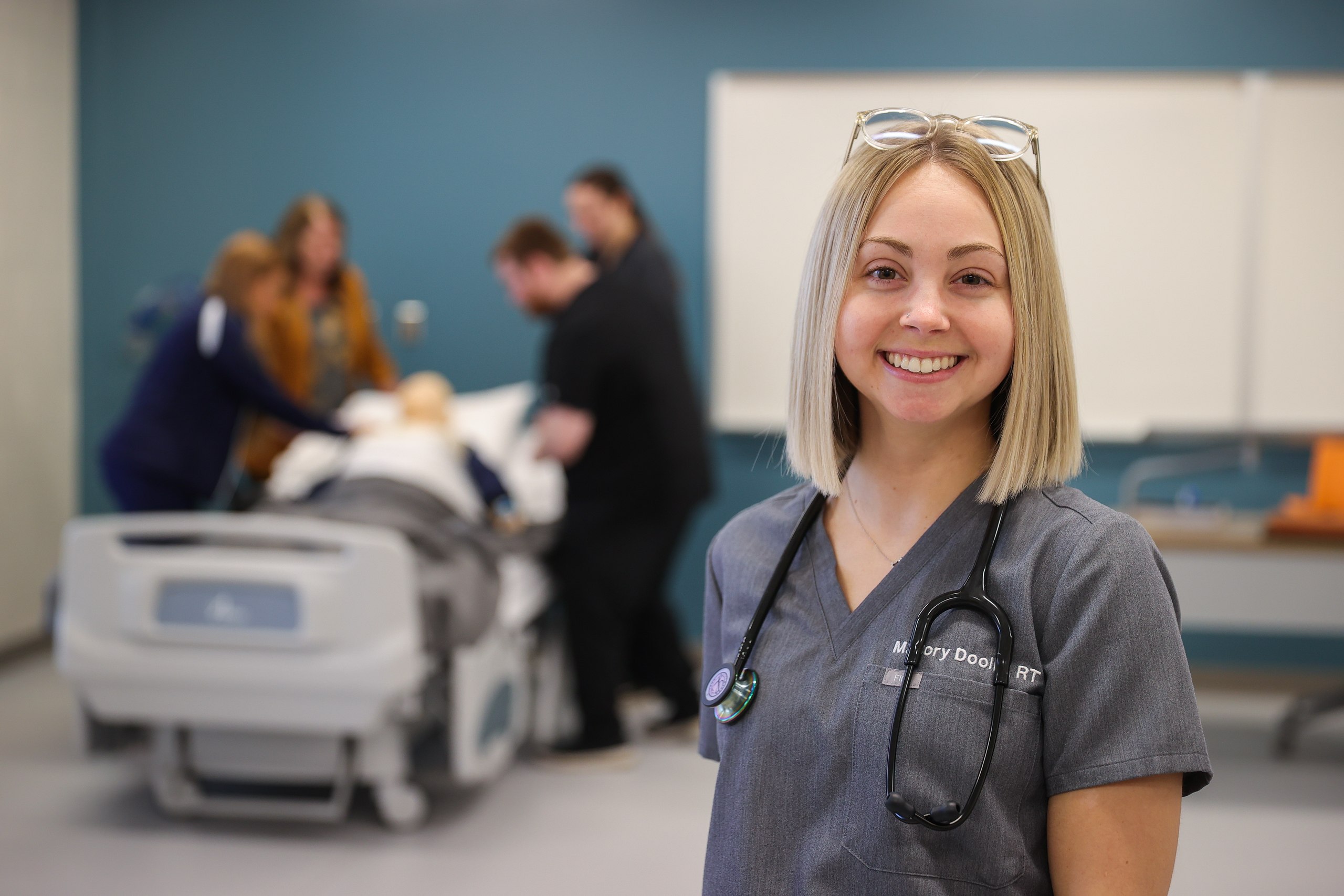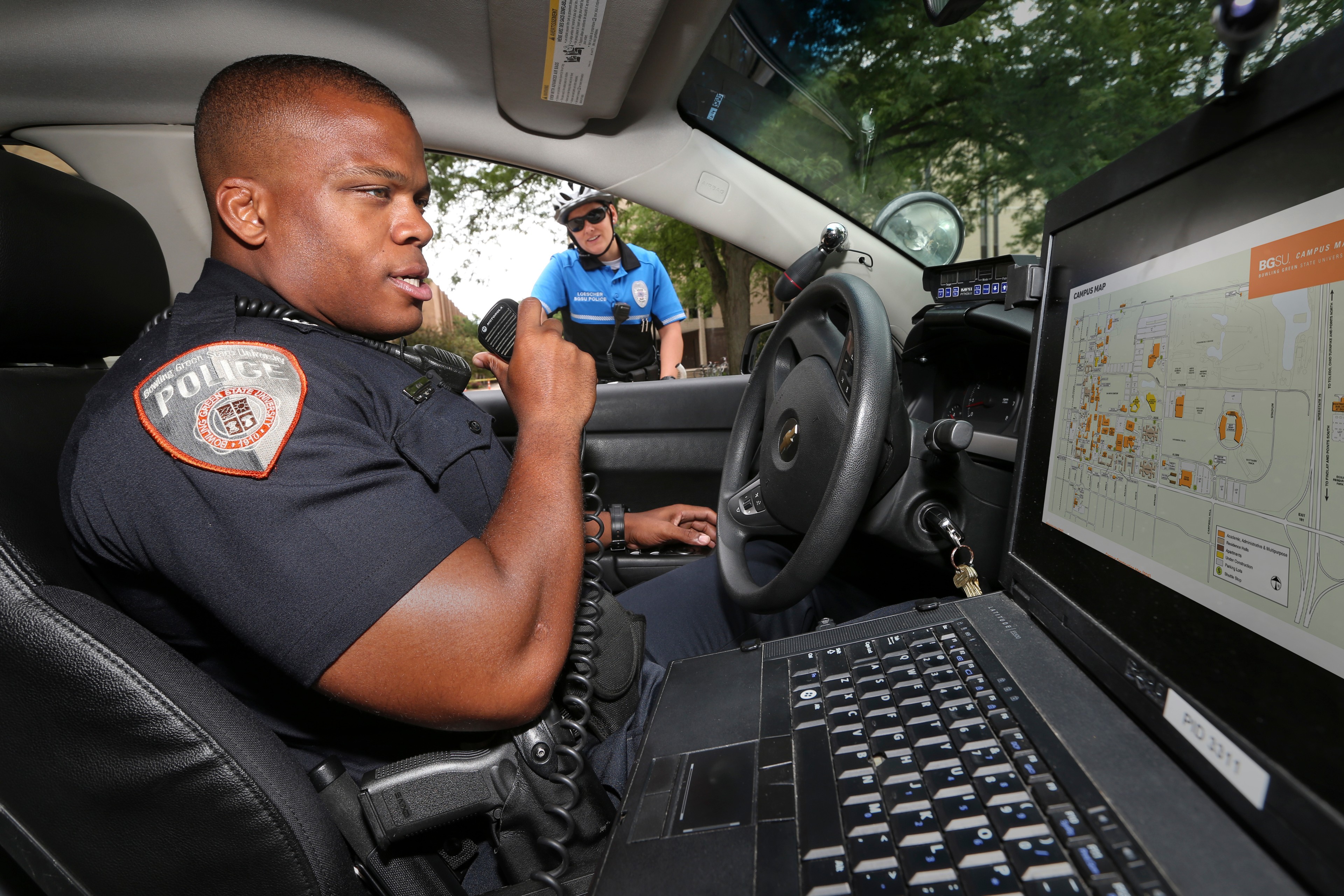
Associate of Applied Science (AAS)
Firelands
Hybrid
Respiratory Care Technology
The Associate of Applied Science in Respiratory Care Technology program is designed to prepare students for practice in respiratory care. Theory, laboratory and clinical experiences provide students with the skills to work as a respiratory therapist in a wide variety of clinical settings evaluating, treating and managing patients of all ages with respiratory illnesses and other cardiopulmonary disorders. Respiratory therapists provide patient care, which includes clinical decision-making and patient education.
Prepare to apply
Students must apply by April 1 for admission consideration. Late applications may be considered if there is an open slot.
- Apply here for admission to the college.
- Complete and submit the respiratory care technology program admission application and return it to program director Carol Puder by email: cpuder@bgsu.edu.
- Choose to attend classes at our base program at BGSU Firelands, or at our satellite program offered through the University Partnership at Lorain County Community College. All admitted cohorts will start in the fall semester.
Quality hybrid classroom experiences
Students take a combination of in-person, online, and hybrid classes. Each hybrid course meets one hour per week in-person, with the remaining instruction completed online. All in-person components for classes are scheduled for the same day each week, from 8 a.m. to 5 p.m., with an hour lunch break. The remaining instruction is delivered asynchronously online.
Clinical rotations start in the spring semester of the second year, and they continue for three consecutive semesters (spring, summer, and fall). Generally, students attend clinicals two days per week at various locations for either an eight- or 12-hour shift. Students will rotate throughout various clinical sites throughout the year. Potential clinical sites range from Cleveland to Toledo. Your assigned locations will depend on your current home location.
Students can obtain a limited permit to practice respiratory care from the State Medical Board. This allows students to work part-time as a student respiratory therapist while completing the program.
Students can expect to:
- Learn to operate life support ventilators
- Perform learned skills on real hospital patients
- Complete clinical rotations for three consecutive semesters
- Gain a skillset to help save lives in emergency rooms and critical care areas
- Become hirable for virtually any hospital or health care facility with a respiratory department
Why study respiratory care technology at BGSU Firelands in Ohio?
- Specialized curriculum. BGSU Firelands offers an Associate of Applied Science program in respiratory care technology designed to provide students with a specialized and in-depth understanding of respiratory treatments and patient care. The curriculum is carefully crafted to cover essential topics and skills needed in the dynamic field of medical imaging.
- Experienced faculty. Students benefit from the expertise of experienced faculty members who are not only skilled educators but also professionals in the field. The faculty's practical knowledge enhances the learning experience, providing valuable insights into real-world scenarios and challenges.
- State-of-the-art facilities. BGSU Firelands is equipped with state-of-the-art facilities that support practical learning and hands-on experiences. Students have access to cutting-edge resources, allowing them to apply theoretical knowledge in a simulated clinical environment, preparing them for the demands of their future careers.
- Outstanding reputation. The respiratory care technology program at BGSU Firelands is well respected across northern Ohio. Healthcare facilities actively recruit our students for employment. Students complete clinical requirements at award-winning medical facilities including Cleveland Clinic, MetroHealth, University Hospitals and Mercy Health, among many others.
Career - what can you do in with a degree in respiratory care technology?
Graduates of the respiratory care technology program at BGSU Firelands are well-positioned for a variety of rewarding career opportunities in the healthcare sector. The program's emphasis on practical skills and theoretical knowledge ensures that graduates are ready to contribute to patient well-being through specialized respiratory treatments.
Career paths
- Hospitals
- Clinics
- Long-term care
- Home care
- Sleep lab
- Neonatal/pediatric critical care
- Cardiac/pulmonary rehabilitation
- Pulmonary function testing
- Disease management
Quick Facts from the Bureau of Labor Statistics
Curriculum
Benefit from the hybrid classroom experience
Students take a combination of in-person, online, and hybrid classes. Each hybrid course meets one hour per week in-person, with the remaining instruction completed online. All in-person components for classes are scheduled for the same day each week, from 8 a.m. to 5 p.m., with an hour lunch break. The remaining instruction is delivered asynchronously online.
Clinical rotations start in the spring semester of the second year, and they continue for three consecutive semesters (spring, summer, and fall). Generally, students attend clinicals two days per week at various locations for either an eight- or 12-hour shift. Students will rotate throughout various clinical sites throughout the year. Potential clinical sites range from Cleveland to Toledo. Your assigned locations will depend on your current home location. Students can obtain a limited permit to practice respiratory care from the State Medical Board. This allows students to work part-time as a student respiratory therapist while completing the program.

Sample courses
- Cardiopulmonary Anatomy and Physiology
- Pulmonary Pathophysiology
- Advanced Cardiac Life Support
- Critical Care Concepts in Respiratory Care
- Allied Health Education
- Health Care Management
- Medical Ethics
- Pharmacology

Program goal statement
To prepare graduates with demonstrated competence in the cognitive (knowledge), psychomotor (skills), and affective (behavior) learning domains of respiratory care practice as performed by registered respiratory therapists (RRTs)
Learn more about the program goal and learning outcomes in the Undergraduate Catalog, found under Program Requirements in the Additional Resources section.
Respiratory care is part of the Applied Sciences at BGSU Firelands
Accreditation
The BGSU Firelands Respiratory Care Associate degree program holds Continuing Accreditation from the Commission on Accreditation for Respiratory Care (www.coarc.com). The BGSU Firelands base program number is 200339 and the LCCC satellite program number is 300009. Program student/graduate outcomes can be found at https://coarc.com/students/programmatic-outcomes-data/. CoARC accredits respiratory therapy education programs in the United States. To achieve this end, it utilizes an ‘outcomes based’ process. Programmatic outcomes are performance indicators that reflect the extent to which the educational goals of the program are achieved and by which program effectiveness is documented. Programmatic outcomes data reported on the CoARC website include: 3-year time period being reported; RRT credentialing success; Achievement of the high cut score on the TMC Exam; Retention; Job placement; Overall Graduate Satisfaction; Overall Employer Satisfaction; Total number of program enrollees; Total number of program graduates; Maximum Annual Enrollment.
Request Information
Updated: 08/07/2025 03:10PM

